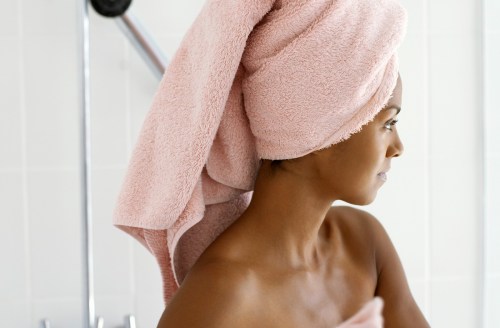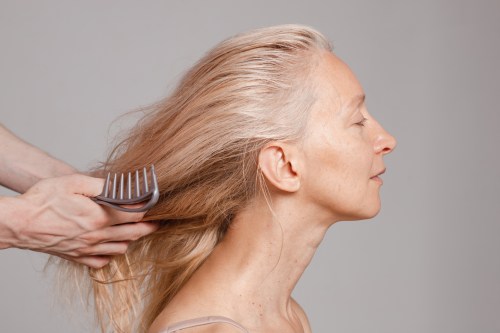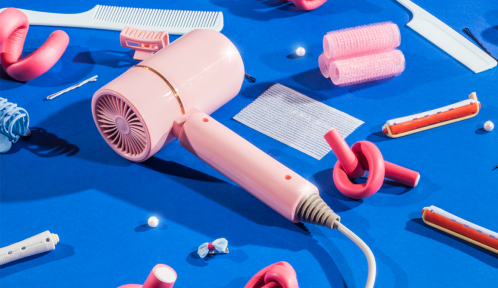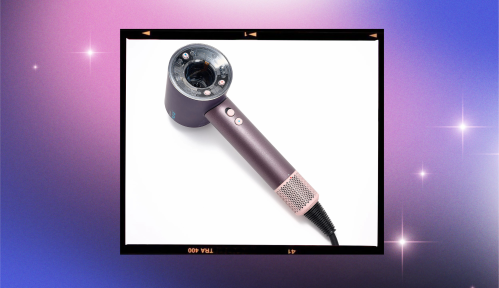Derms weigh in on how to break up with your scalp zits once and for all
It's very common to get pimples on your scalp. Docs explain why it happens and how you can banish the problem: Here's how to treat folliculitis at home.

Pimples are annoying, no matter where they sprout. But when they’re on your face, it’s a particularly annoying drag because, well, it’s your face. Hey, at least these are the kinds of blemishes that have tons of products and prescriptions with which you can quash them, though. Same goes for buttne, chest pimples, and backne, all of which offer dedicated methods of banishment. What about scalp pimples—or folliculitis—though?
I recently stumbled across a Reddit thread focused on treating acne-prone scalps and proceeded to ask everyone around me if that’s something they suffer from (I haven’t yet noticed it on my own head). Well, turns out it’s a totally normal yet widely under-discussed issue, which means the solutions aren’t widely known either.
“Pimples on the scalp are extremely common,” says Joshua Zeichner, MD, a New York-based dermatologist. “Contrary to what many people think, it’s not true acne, but rather folliculitis, which is an infection of the hair follicles.”
Even though a pimple with hair isn’t technically a pimple, the infection can “mimic acne,” according to Connecticut-based dermatologist Mona Gohara, MD. “They can be little pustules.” In other words, they ain’t pleasant.
So how can your scalp—something you likely clean every day or hey, at least once or twice a week—get an infection that leads to breakouts? “In some cases it can be caused by bacteria on the skin, and in other cases, it may be the result of high levels of yeast, which also cause dandruff,” Dr. Zeichner explains. “Also, when the healthy levels of microorganisms on our scalp become disrupted, it can contribute to a variety of different skin diseases.” It can also come from irritating dyes or hair products, Dr. Gohara adds.
So how do you treat folliculitis?
Redditors rave about tea tree oil as a solution to the problem. “Tea tree shampoo helps, or just add a few drops of tea tree oil in your shampoo bottle,” one person writes. “I would usually just add a drop into my hand and mix it with my shampoo in the shower.”
“Tea tree oil has antimicrobial and anti-inflammatory properties, making it a natural option in treating a variety of skin conditions [like this].” —Joshua Zeichner, MD
Of course, this does make sense since the natural ingredient has strong healing powers. “Tea tree oil has antimicrobial and anti-inflammatory properties, making it a natural option in treating a variety of skin conditions [like this],” says Dr. Zeichner, who adds the importance of using with the ingredient with caution, as it can sometimes cause irritation.
He also recommends looking for a certain kind of shampoo. “If you suffer from an itchy scalp along with flaking and bumps, try a zinc-pyrithione-containing shampoo like Dove DermaCare Scalp. Make sure to rub it into the scalp so it can treat the skin. Let it lather while you sing the alphabet then rinse it out.”
If these methods don’t work, consider visiting your dermatologist, who may give you prescription shampoo or a topical or an oral antibiotic. It may not be as simple as, say, using a salicylic acid-packed butt mask to fight acne, but eventually you’ll find a method that works for you.
To keep those locks healthy, try these 10 supplements for thicker, fuller hair. And here’s how to deal with split ends and hair damage.
Sign Up for Our Daily Newsletter
Get all the latest in wellness, trends, food, fitness, beauty, and more delivered right to your inbox.
Got it, you've been added to our email list.










